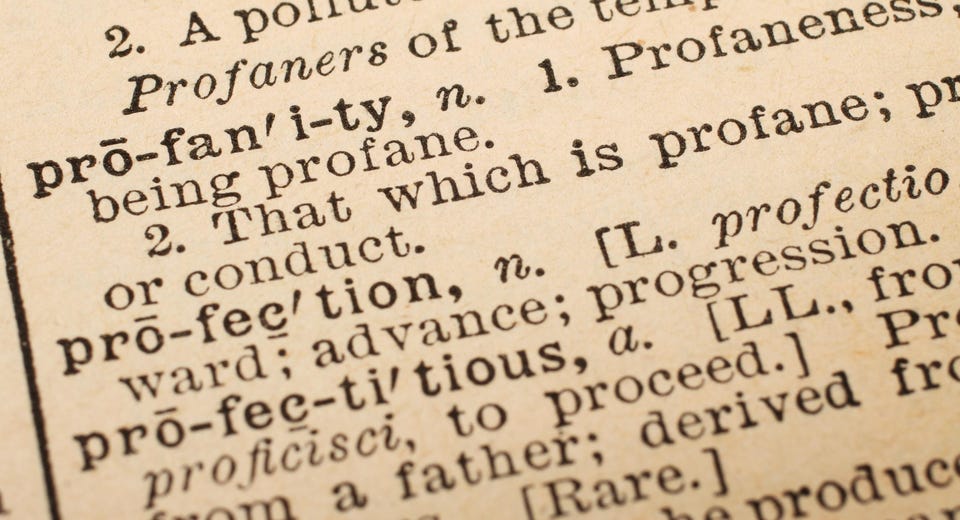YouTube Has Reversed Profanity Policy Again, But Does Profanity Have Any Power Left?


The rhetorical shift started in the 1990s, when Gen X was coming of age – and based on evidence from … [+] social media posts, Gen Z is more likely to be accepting of profanity use than their older peers
YouTube has reversed course on its controversial profanity policy, announcing earlier this year that its new rules introduced in November had taken a “stricter approach” than originally intended. As a result, in January, the video-sharing service said it would modify the rules accordingly.
Now this week, YouTube has said it will review videos from creators who had their monetization affected by the November changes.
“We’ve updated our guidelines regarding Inappropriate language. Profanity (for example, the f-word) used in the first 7 seconds or majority of the video may earn limited ad revenue rather than no ad revenue, as previously announced below. Usage of words like ‘bitch,’ ‘douchebag,’ ‘a**hole’ and ‘s**t’ in the video content is eligible for green icons. Profanity used in the first 8-15 seconds may now earn ad revenue. We’ve also clarified our guidance on how profanity in music is treated; strong profanity used in background music, backing tracks, intro/outro music may earn ad revenue,” the company announced on Wednesday.
Power Of Profanity?
There has been much discussion already about what these still vague rule clarifications may actually mean for content creators. More importantly, none of it seems to address changing attitudes toward profanity in general. A question could be asked as to whether the power of profanity has been diminished – and thus is YouTube behind the curve rather than on the cutting edge of societal change?
“Profanity has shifted in terms of acceptability in recent years. Profanity in social circles is more commonplace, where some subcultures consider them, ironically or not, terms of endearment for those in the same social circle,” said Julianna Kirschner, Ph.D, lecturer for the Master of Communication Management program at the University of Southern California.
In other (less foul) words, the prevalence of these terms has lessened the rhetorical power they once held. Content creators on YouTube and TikTok often use this “strong language” as punctuation or emphasis for an earlier stated point.
“The ubiquity of profanity has made their use less offensive for all generations, despite some challenges from the Baby Boomer generation,” explained Kirschner. “One only needs to view the comments on YouTube to see Boomer and some early Gen X disagreement on profanity use. However, most of Gen X, Millennials, and Gen Z do not seem to be as bothered by it.”
In fact, the rhetorical shift started in the 1990s, when Gen X was coming of age – and based on evidence from social media posts, Gen Z is more likely to be accepting of profanity use than their older peers. Words that might have made some blush are now so common that the shock value is gone.
Evolution of Language
There are countless terms that could have once been problem words, which isn’t the case today.
“Language can evolve quickly,” said Kirschner. “In the late 1990s and early 2000s, the term queer was considered an insult, depending on how it was used. However, the term queer has been reappropriated by the LGBTQ+ community. Queer is now a common identifier (hence, the Q in LGBTQ+) that one can use to define themselves. We also have Queer Studies to analyze the queer community and its many diverse expressions.”
Meanwhile, there are some seemingly once acceptable terms that are now seen as “trigger words” and not just by those in the “woke crowd.” Thus, what was once profane may not be so offensive today while other words can be hurtful or harmful.
“In the case of profanity, a reclamation of sorts is happening, but it is difficult to say how much further this evolution will go,” Kirschner continued. “What we do know now is that preconceived notions of expressions can change. What used to be offensive can become commonplace in a few short years.”
